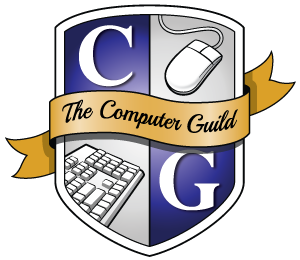Identity Theft
Computer viruses are extremely common these days with the advance of technology. Hackers target peoples computers and laptops at an alarming rate. Once someone has your information, they can do whatever they want with it; from hacking into your bank account to completely stealing your identity.
Types of Identity Theft
Identity theft has been going on long before the advancement of technology. During old west days, outlaws would murder someone so they could take on the victums identity, giving them time to hide out. Even more recently, people would use a technique called ‘ghosting’ whereby someone would steal a deceased victim’s identity whose physical appearance closely resembled their own.
With the advancement of technology, it is much easier for a perpetrator to commit identity theft. In this article I will discuss the 3 of the most common types.
Those include:
- Low-tech tactics- These are old school methods whereby somebody either obtains the victim's wallet or personal documents through theft. Dumpster diving is a self-explanatory term that includes the criminal getting into the victims trash and obtaining documents with sensitive information. Although these tactics can be effective, they are also time-consuming and dangerous to the thief.
- Phishing- This is where the perpetrator calls or sends a mass amount of emails to their victim(s) in order to obtain personal information. Keep in mind that the IRS, banks, and other government-run businesses will never call or email you to ask for your personal information.
- Malware -Is the easiest and safest way for someone to steal a victims information. These are technology-based tactics by which scammers usually get a victim to download a program onto their computer in order to gain access to all of their files.
Types of Malware
- Worms - Are the most common type of malware. Their main goal is to steal data and delete files, and are usually spread through mass emails through downloading an attachment. They can self replicate and attach themselves to different files across a network. Worms will consume bandwidth and overload the web server, thus slowing down your computer.
- Viruses - Are a type of malware that can copy itself and infect other computers. It does this through spreading an executable code which is attached to an executable file and then can be passed to another computer. The main goal of a virus is to modify and delete data, and unlike worms, they require a host program to run.
- Spyware- As its name implies, is intended to be used to spy on the victim, and steal personal information. The malware is capable of monitoring the users activity, collecting keystrokes, modifying security settings, interfering with the network connections and much more. Spyware can imitate a regular file and be spread through email attachments and files.
- Trojan Horse - Is a particular type of spyware, which disguises itself as a legitimate program in order to infiltrate the victim's computer to steal sensitive information.
- Ransomware - Is a type of malware that literally will hold a user captive by stealing sensitive data, and hold it until the user pays a ransom to the criminal. Once the victim pays, the malware is removed, and their computer returns to running as usual.
- Rootkits - These give access to a perpetrator to be able to have remote access to the victim's computer.
The Consequences of Identity Theft
Now that you have an idea about the different ways, someone can steal your personal information. Let's take a look at how this information can be used. Remember, the ramifications for identity theft go beyond someone being able to access your credit cards and bank account.
Medical
People usually will steal your medical identity so they can use your insurance for their own conditions. This could go on unnoticed until you have a procedure done, or you go to the hospital. Once there, you could be denied access to medical services, or be given the wrong treatment. You can also be charged for medical services you never received. It could take years to undo all of the mess that ensues in the aftermath, and your credit can take a large hit.
Professional
Having the wrong medical condition in your file can also affect your future job prospects. If someone with a mental health disorder uses your name and insurance information, you might be denied jobs working with the public based on your background check.
Many employers look at credit scores as one of the ways to assess a potential hire. Careers in finance and banking require their employees to have good credit. Their reasoning is because they want their employees to implement their understanding of finances and credit within their personal financial affairs. A bad credit report may point to disorganization and irresponsibility within your personal life that may translate to your job. Then lastly, it might indicate financial distress and a greater likelihood of theft within the company.
Personal
Certain types of identity theft don’t involve stealing a victim's money. Criminal identity theft involves a criminal using your personal information upon arrest, linking you to the crime. This type of identity theft has the most detrimental consequences for the victim. You could be driving along with your family on a sunny day, and get pulled over for speeding. Then, minutes later be arrested for a crime you didn’t commit.
Another type of theft involves someone paying a hacker to gain access to your social security number. These are usually people living in the US illegally; they will use it to gain legal entry into the workforce. They will work, pay their bills, and pay taxes using their victim's identity. Their goal is to be unnoticed so they will work and pay their bills as normal. The problem arises if there is a mistake with their tax information, or if they did not pay the right amount of taxes. The IRS will then contact the victim, whose address is connected to the security number. Now the victim has to try to prove they didn’t make the money connected to the job they didn’t work.
Our approach to identify theft
Here at the Computer Guild, we want you to know we are here for you if you ever get malware on your computer. We handle situations like this all the time, and we want you to know you are in good hands. Every situation is unique, and we treat each one with a combination of empathy, and carefully executed tech support. If you ever think your computer has been compromised, your best bet is to shut it down and bring it in so we can take a look.
Please feel free to email us or call at 269-372-1170. Follow us on Facebook @ComputerGuild.

